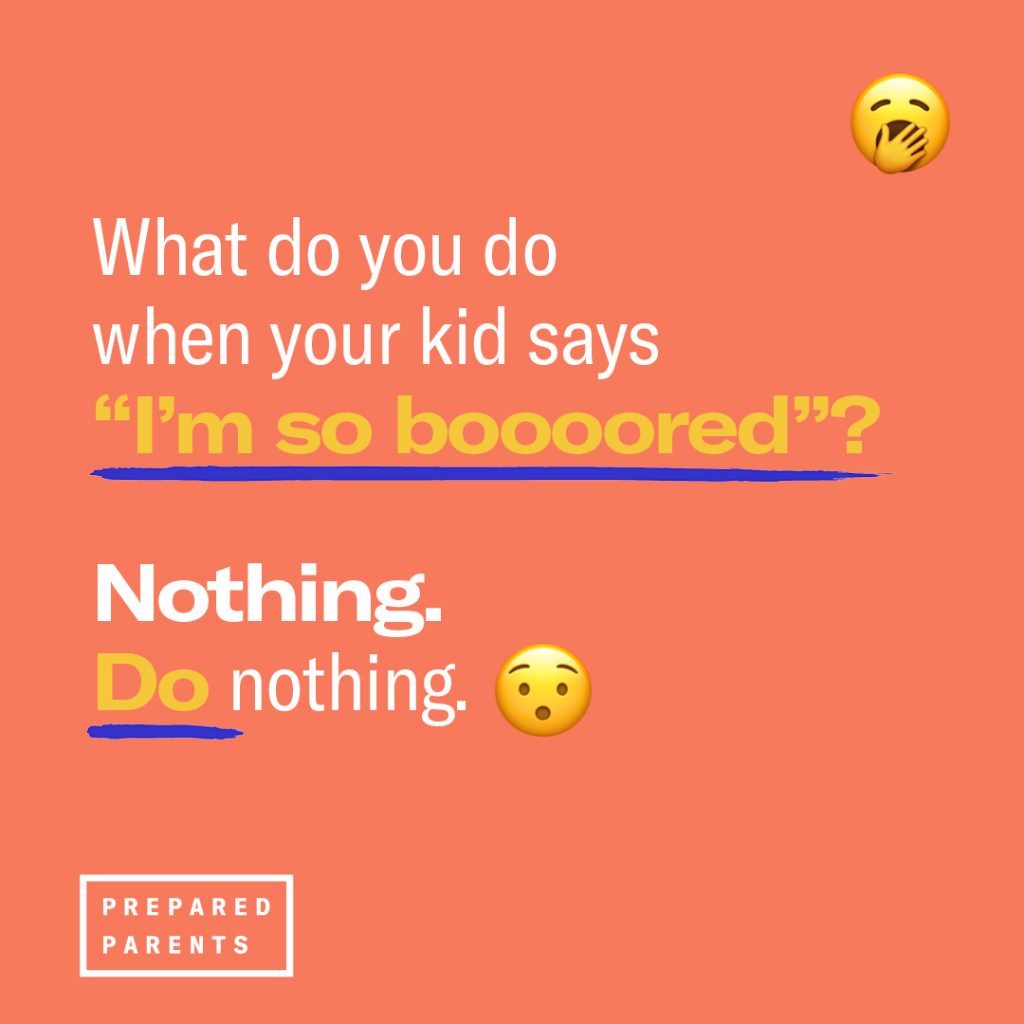Next time your kid says, “I’m so bored,” consider it a parenting win!
Sweeter words than “I’m so bored” have yet to be spoken. Being bored actually opens up a whole world of possibilities. Kids who are bored can shift their imaginations into high gear. That’s because our brains don’t like having nothing to do. They’ll start searching for anything to occupy them, making boredom the first step toward visualizing new opportunities. We commonly call that daydreaming, but it’s so much more.
Neuroscientist Marcus Raichle says that when we let our minds wander, we’re activating what he calls the “default mode network.” We’re not focusing on an external goal-oriented task, but our minds are not switched off either. They’re working incredibly hard tapping into memories, envisioning the future, replaying the past, and reflecting on who we are.

Boredom can be a hotbed of creativity, problem-solving, and curiosity. It’s also a chance to develop skills kids will need when they’re ready to pursue a career. The top five job skills 21st century employers look for are creativity, critical thinking, communication, strategic thinking, and problem-solving.
The next time your kid laments, “I’m bored,” don’t tell them what to do. Instead, try one of the following strategies:
Leave them alone.
You’ve got enough on your plate balancing all your responsibilities; you don’t need to entertain your kid. Instead, leave them alone and let them figure it out. It was only a short generation ago that parents believed kids needed a certain amount of boredom. Societal expectations have shifted leaving us today fearing that if our kids have nothing to do, they’re missing out or worse, falling behind. And so, we assume every spare moment should be maximized. The impact on kids who let their parents take control and micromanage every moment of life results in ineffective coping skills, stress, depression, and a lower level of satisfaction with life.
Give them power tools.
Well, maybe not a chainsaw or a drill, but provide the materials they can use to banish the boredom—books, art supplies, even the stuff in the junk drawer —and see what they do with them. You’re giving your kids a chance to try out some skills and that builds confidence. Confident kids believe in their own ability, which pushes them to try even more new things.
Get down with downtime.
Don’t pack the schedule from morning until bedtime. Engaging in too many activities does not allow a kid to look inward. It offers external stimulation that may not connect to who they are. Joy comes from discovering what’s interesting and when they figure out how to spend their time they’re learning what motivates them. The satisfaction they attain from what they’re doing will spur a kid on to deeper interests. That curiosity just may inspire a purpose that could set the course for their life.
“There is nothing better to spur creativity than a blank page or an empty bedroom.”
-Lin-Manuel Miranda, author, composer and actor, credits unscheduled afternoons for his inspiration
Push the play button.
Just tell them to go play. When kids play, they experiment, improvise, and make things up. It’s a great way for them to follow their curiosity and discover a passion. By the way, it’s fine for mom and dad to take a little time to play too. If you’re joining your kids, they’ll learn social interaction and adaptability.
Give them a high five.
Take a few minutes to show your kid how proud you are, not only that they found something to do, but also that they’re enjoying it. Kids thrive on short bursts of undivided attention. Acknowledge the effort they’re taking because it’s really all about the effort, not a final outcome. Talk to them about their process by asking
- How did you choose to create, build, or research that topic?
- What’s your takeaway that you’ll remember?
- How can I help you do this project again? What tools do you need?
At the end of the day, your kid’s boredom can spark a lot of activity. It may even inspire you to “get bored” with them, too.

